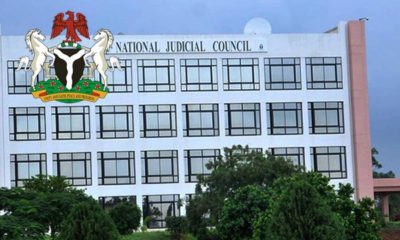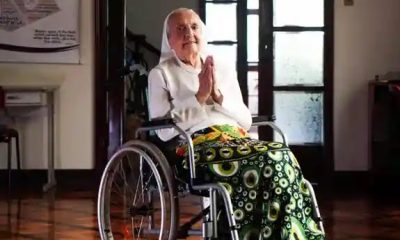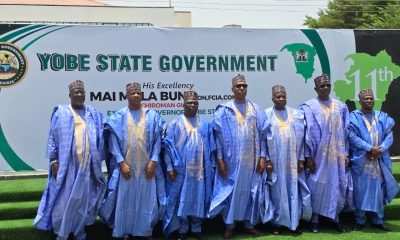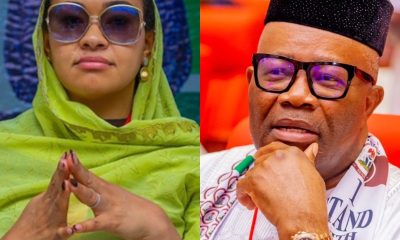Opinion
Untold Stories Of Political Marginalisation In Benue, Delta
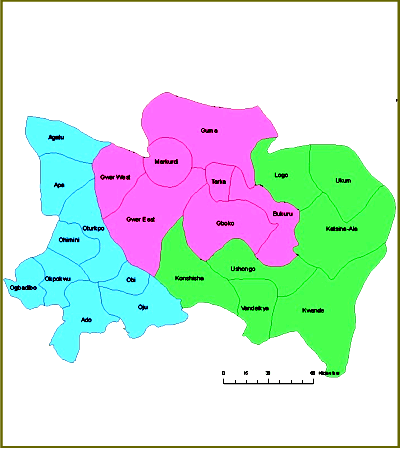
It is a twist of irony that Governor Samuel Ortom who is selflessly canvassing power shift to the South is under pressure to preach what he is canvassing at the national level in his native Benue State.
After monopolizing the governorship of Benue State since 1999, the Tiv in Benue are in pole position to sustain their monopoly beyond 2023.
Reports indicate that the Tiv who dominate Zones A and B senatorial districts of Benue are set to produce the two candidates in the two major parties, Peoples Democratic Party, PDP and the All Progressives Congress, APC. So, head or tail, the next governor of Benue State could be Tiv.
The imagination of this is something that has gotten the second most populous ethnic group in the state, that is, the Idoma fuming. The Idoma dominate the third senatorial section of the state, Zone C.
They are in revulsion that they would continue to play second fiddle in the affairs of the state.
Besides the executive branch, the Idoma in Benue have also been perpetually made to play second fiddle in the two other branches of government, the legislature and the judiciary.
As with the governorship, no Idoma has been speaker of the State House of Assembly as they have been perpetually made to produce the deputy speaker.
In the judiciary, with the notable exception of the now retired Justice Adam Onum who was recommended by Governor Ortom, no other Idoma has held the position of Chief Judge in Benue State in the Fourth Republic.
Indeed, after the notable effort of Governor Ortom of pushing the confirmation of Onum in 2017, some Idoma are indeed hoping that the outgoing governor would be their saviour in bringing forth a governor from Zone C.
Hearsay has it that Ortom is supporting his Idoma deputy, Benson Abounu to break the ice.
However, it is a systematic barrier which many doubt Ortom can shatter.
Indeed, the political relationship between the Tiv in Zones A and B and the Idoma who dominate Zone C has been laced with much intrigues since 1999.
The gist was that in 1999 as a way of ridiculing the Idoma, that the Tiv brought out a deputy in the person of Chief Ogiri Ajene, an Igede man, from one of the minority ethnic groups within the Idoma dominated Zone C.
In effect, no one could constitutionally say that Zone C was unrepresented in government with the emergence of Chief Ajene.
In 2007, Gabriel Suswam who became governor picked the properly Idoma born but elderly Chief Steven Lawani as his deputy.
By the time they finished their two terms, Lawani was 68 and it was unrealistic shoveling the elderly man up for governor.
In 2015 there were suggestions that the Tiv would relent, and hence, Sam Ode, who is of mixed Tiv-Idoma parentage was suggested.
Born of a Tiv mother but to an Idoma father, Sam Ode was literarily raised among the Tiv and is said to speak little Idoma.
That project which failed, was in any case, resisted by some Idoma who saw it as an opportunity of foisting a Tiv on them as an Idoma governor.
While the Idoma are quick to spew claims of marginalization, the Tiv allege that the minority take their pound of flesh at the federal level where the reverse is allegedly the case. The Idoma, it is claimed, monopolise appointments and allocations for Benue in the military, police and other federal agencies.
The case of Idoma suppression of the Tiv was especially echoed between 2007 and 2015 when Idoma born Senator David Mark was president of the Senate. There were even occasions when the Idoma held the two ministerial positions at the behest of Senator Mark.
Even more, the Tiv accuse the Idoma of not being fair to other minorities within Zone C, alleging that they are not given political expression for Senate or House of Representatives.
The case of the former Igede born deputy governor, Chief Ajene who following his time as the state’s number two citizen became a councillor is cited. Some infer that he took the decision because the Idoma would not allow him be senator or any other thing within Zone C.
Remarkably, the Tiv may be fearing the fate of the Urhobo in Delta State. Though less dominant, the Urhobo had in 2014 boasted that they would monopolise power in Delta State following the enunciation of the Uvwiamughe Declaration.
By that declaration, the Urhobo seemed to have forsworn zoning and it took the political and other efforts of Senator Ifeanyi Okowa to defeat that assertion. Today, those Urhobo political and traditional actors who renounced zoning are here and there preaching that it is the turn of the Urhobo in 2023.
It is an argument that is now complicated with the trenchant demand of the Ijaw who despite their size and presence in the polity have been relegated.
Indeed, the fear by some in Delta is that after being humbled, that should the governorship return to the Urhobo in Delta Central in 2023, that they could orchestrate a Tiv-like machination to lock other senatorial districts away from the power equation thereafter.
It is indeed humbling for your correspondent that in all the narratives highlighted above that the issue of ideology and good governance has not been mentioned. Rather, it is the primordial political behaviour of tribe and tongue that still shapes the Nigerian political system.
That is what brought Nigeria to this point where even tribal attachments to those outside the geographical entity is honoured above dealings with fellow citizens.
Send Us A Press Statement Advertise With Us Contact Us
And For More Nigerian News Visit GWG.NG


